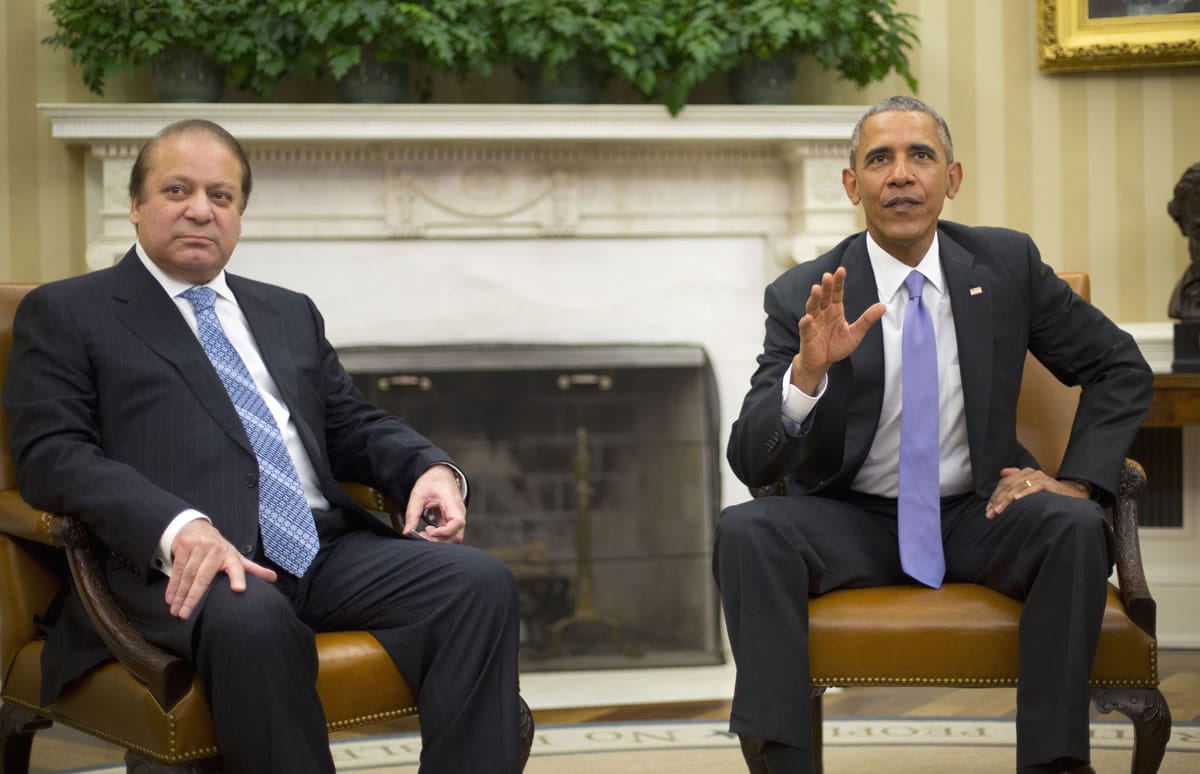WASHINGTON — President Barack Obama welcomed Pakistani Prime Minister Nawaz Sharif to the White House on Thursday with fresh promises to strengthen a relationship with an ally viewed as the best hope — and sometime hindrance — to brokering peace in Afghanistan.
The leaders emerged from a 90-minute Oval Office meeting announcing no timeline for stalled peace talks, nor any major breakthroughs on other items that topped the agenda, including concerns over the growth of Pakistan’s nuclear arsenal.
Instead, statements released by the leaders touted new initiatives on trade, clean energy and education for girls.
Obama stressed cooperation “not just on security matters, but also on economic and scientific and educational affairs.”
Sharif agreed he hoped “to further strengthen and solidify this relationship.”
The warm words come as the White House is trying to pressure Pakistan to play a major role in Washington’s newly revised plans to end the 14-year-old war at Pakistan’s doorstep. Obama last week reversed his pledge to pull American troops out of Afghanistan before he leaves office — an acknowledgment that the country still teeters on the edge of instability. With that decision settled, U.S. officials now hope to focus on political strategies for peace, including coaxing Pakistan toward reviving peace talks stalled since the summer.
Obama thanked Sharif for Pakistan’s role in negotiations and stressed that the U.S. believed an “Afghan-led” reconciliation process is “the only way to bring lasting stability and peace to Afghanistan and the region,” according to a White House statement released after the meeting.
The visit highlights the complex alliances in the war that Obama inherited in 2009, escalated a year later with a surge of American troops designed in part to force the Taliban to the negotiating table, and then vowed to end before he leaves office in January 2017. Instead, Obama announced plans to keep 5,500 U.S. troops there beyond 2016 to continue training and advising Afghan forces and to hunt al-Qaida terrorists.
Pakistan hosted a landmark set of preliminary meetings between Afghan officials and the Taliban in July. But a second round of scheduled talks was postponed after the Afghan government revealed that Taliban leader Mullah Mohammad Omar had died in a Pakistani hospital two years ago.
The U.S.-Pakistan relationship has been rocky over the years, not least because of U.S. concerns about the growth of Pakistan’s secretive nuclear arsenal.
In a new report released Thursday, two authoritative nuclear analysts estimated that Pakistan’s nuclear weapons stockpile has increased to between 110 and 130 warheads from an estimated 90 to 110 in 2011. The analysts foresee it possibly expanding further to 220 to 250 warheads in another 10 years. That would make Pakistan the world’s fifth largest nuclear weapons state behind the United States, Russia, China and France.



